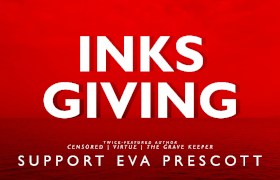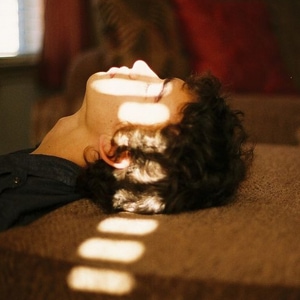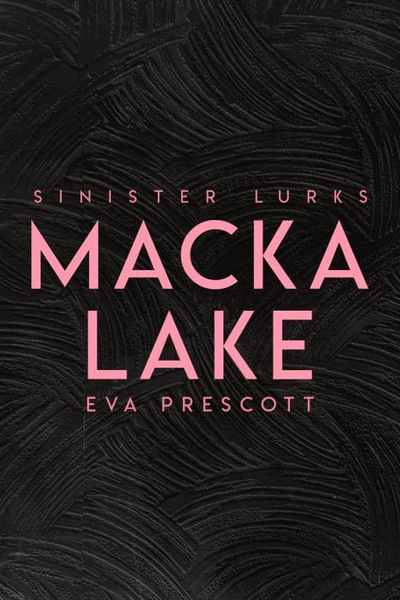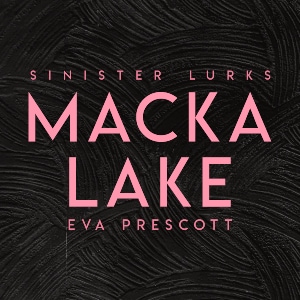A black pickup materialized behind me, trailing for a few seconds before it honked loudly. The driver’s window rolled down.
“Get in,” Lorgan said. “I’ll give you a lift, there and back. Are you going to the SSC?”
The tiny warning at the end of the City’s letter flashed back to me for a second—To ensure your safety, please DO NOT bring anybody else on this trip with you—before I promptly shoved it off.
“Yeah,” I said. I dismounted and reeled my bike up at the bike rack at the back of his truck. “Thanks, Lor.”
The day’s warmth crept up the back of my neck, beading in the sweat collecting between my shoulder blades. I slotted myself in the shotgun, waving the blue smoke out the window. The truck interior was tinted black, the semi-darkness rendered Lorgan’s soft outlines into severe angles and steep slopes. I spotted Lorgan’s gun on the backseat, a belt of rounds spreaded next to it. A cigarette was hanging from Lorgan’s lips, the smell of faux-peppermint stuck on the car’s seat, soaked into the fabric and stitched on Lorgan’s skin.
"What's in the backpack?" Lorgan asked.
"Stuffs."
Lorgan flicked the ash out the tiny crack of the window on the driver side, exhaling smoke, before placing his hands on either side of the wheel, pulling away from the curb.
The ride was silent. Lorgan drove me to the Sydney Service Centre first to grab the city-issued cleaning equipment and sign some papers, and before long we were heading North of the Eastern Distributor Freeway, wind thumped on the windshield.
It was a hard habit not to lean over and turned on the radio to fill in the void. Its presence intercepted the electronics and GPS signals—at first was just around here at Macka Lake, then Sydney was down, until one day the country’s last back-up electronics system fell after the fifth batch of Tads came to the surface.
Just like that, one bright day, the planes stopped taking off and the boats left the major docks never coming back. Nobody left, nobody came.
By the time what the Fed was covering up was leaked, it was too late.
I rolled down the windows, letting the breeze in. The salt from the sea swept across the shore, thickening on my skin and my tongue. Darlinghurst scrolled past us in monochrome streaks of gray and green, then the Circular Quay emerged into view, bumbling and thrilling and alive. Skyscrapers stood tall and proud like soldiers, casting protective shadows onto the hubbub belows. Weaving between the jacaranda trees, little girls and boys raced one other, sunlight filtered through the thick canopy, illuminated their bright, innocent faces—still so naive and trusting, still so fragile and precious to comprehend the magnitude of the horror they were living in.
And I wondered: were their parents looking out from the boutiques’ or cafes’ shop windows, smiling at their children, and did the same thing I did since the beginning of every summer. Were their parents also tallying the chance, counting the odds that their son or daughter would be picked, reassuring themselves the odds was less than one percent, that their child would be okay? Or were they bracing, tip-toeing between despair and faith, hope against hope?
⸻
Mission Point marked the shift in territory.
Here, civilization became reminiscent of the past.
Weed overgrown on the side of the road, broke through the pavements and the asphalt, climbing up the rusted handrails. Wild yellow flowers fluttered as the truck zoomed past. I glanced back at the side mirror, watching the Quay and the landmark Opera House sinking beneath the horizon, delineated in golden and pink, a beautiful picture sliced into fragments by the beams and arches of the Sydney Harbour Bridge. The Cantilever curves soared and dipped, soared and dipped, soared and dipped—until all that reduced down to were round points shifting and rearranging themselves, and a static, eerie tranquility caressing the air. The Lake curved on our right, lapping, tiny wavelets chased each other to the shore and crashed in a burst of white foam.
The Tads got North Sydney, while the remaining human survivors huddled back in South Sydney. The roads up North weren’t maintained anymore after the reallocation. Some of the Tads adapted to living with humans and integrated into human modern society, a lot of them moved to the South. However, most still preferred to dwell in the isolated, brooding silence of nature, happily living in identical modest brick townhouses that differed only by their address numbers, enjoying a job in farming and agriculture, assimilating themselves into the countryside lifestyles. Zoe and I used to lean out the rails at the Quay, watching the Tads sunning themselves along the shores in colourful summer dresses, giggling and grinning and looking all too human, their light laughter traveled across the Lake, sounded like the now-sacred images Before the Fall. Zoe had looked at the Tads with something in her eyes—perhaps contemplativeness, or respect, or fear—her voice was hollow when she wondered aloud, Doesn’t this make you doubt yourself? What if we are just loathing on a harmless race?
Paperbarks and maples circumvented around the Lake’s banks, the layering white barks reminded me of rare snowfalls in the winter. Sparrows perched along the tattered electric lines, chirping down at us. Waterfowls quacking in the distance, gathering in a close circle as they waddled across the lake, their graceful forms ducked underwater and returned to the surface moments later, happy and unharmed. A lone white-bellied sea-eagle looped in lazy infinite-figure above our head.
They’re killers and rapists, Zoe, I had said. All of them.
⸻
Instead of stopping at the border as I expected, Lorgan drove me all the way down to the Dock.
We cruised through the shaded neighbourhood. Biles pushed up my esophagus as soon as I recognized the first person we passed, as well as the two people that were talking on the lawn on our left. Out of the corner of my eyes, a quick shadow vaulted over to his friend’s backyard, face splitted in a wide, mischievous grin. People were milling about, jaywalking across streets, a spitting reflection of Darlinghust and Circular Quay—only that too many of the population looked akin to one another.
I felt myself cringing away from the window, shrinking as the Tads paused their Friday and watched the stranger’s truck with wariness in their eyes. I didn’t know all of their names, but I knew their faces. I knew how they looked when they got Picked. And somehow, that snippet of fleeting memory felt too private, too intimate. I knew how they died. I knew they were forced into the Chamber, howling and raving, their cries were muffled as they were suffocated in the water, tentacles encased them, tentacles filled them up until every hole in their body was stretched and abused, choking in altering coercion substances. I knew how they spiralled into a sex fiend, I knew what they look like always bloated and plugged up and leaking with alien fluid. I knew their hazy, placid look when they were pumped full of eggs, I knew their crazed look when they felt empty, when they needed to be full again.
I knew all of them drowned themselves in June. The tentacles stopped seeking above. And they, brainwashed by Its fluid, went mad with some sort of madden keen need and dove into the water. They all ended their life the same way—Zoe drowned herself at the first snowfall, after giving birth to a clutch of twenty. Her dead body stayed afloat, uncollected and covered underneath a flimsy, thin layer of snow. And when the snow melted three days later, the body was gone, no trace found, no bones or flesh remained.
“God,” Lorgan said, breath caught as if he saw ghosts. I flicked my gaze up, and my heart stopped.
Zoe.
Hidden. Behind a tree. The green-tinted shadow almost masked her out of sight.
I froze, affixed.












Comments (0)
See all